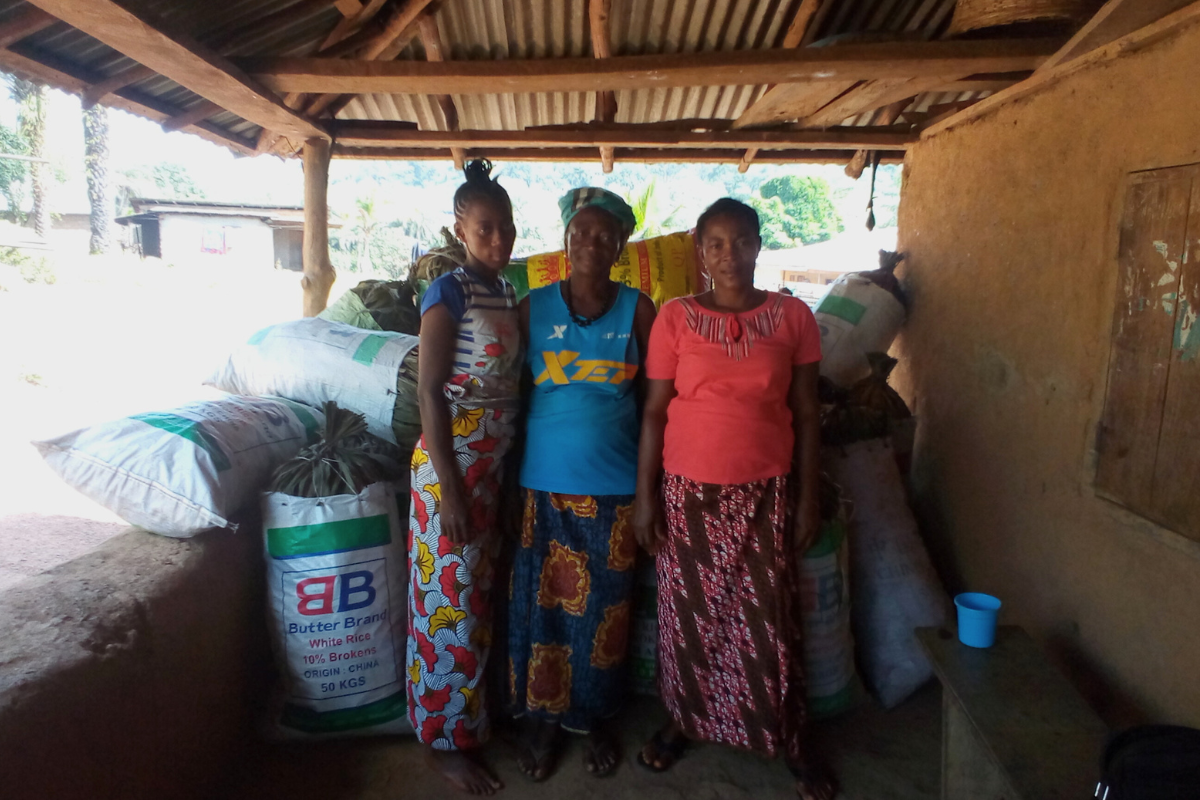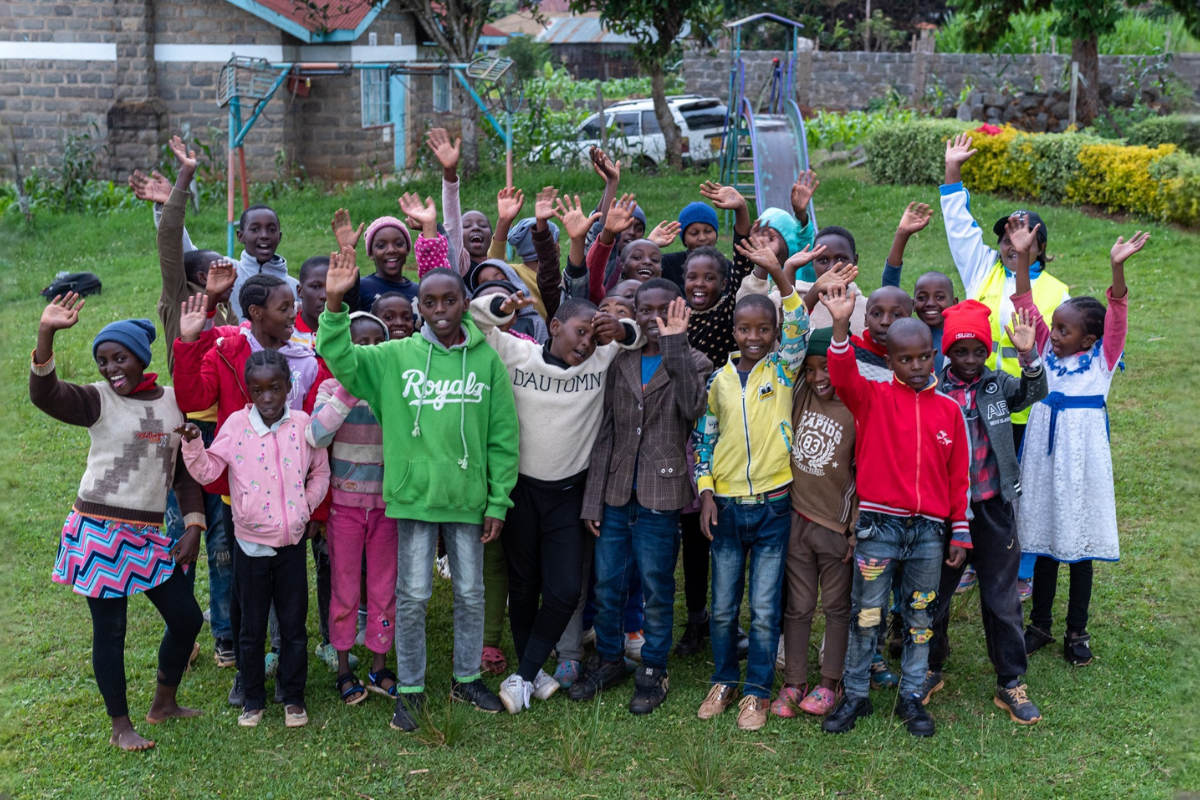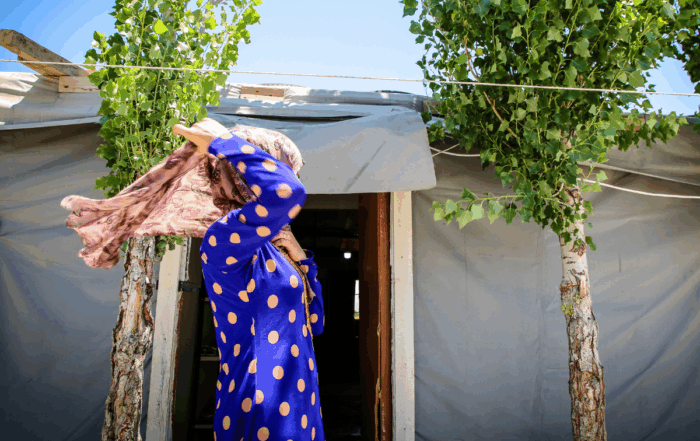A widow stands up for her rights

When Fatmata Sesay’s husband died of tuberculosis a few years ago, her life and livelihood became extremely vulnerable.
As a woman living in Sierra Leone, Fatmata already faced many challenges because of the unfair and unequal treatment of individuals based on their gender. In this country and in many others where World Renew works, gender injustice most often targets women and girls and is driven by social constructs and cultural norms that perpetuate inequality and sometimes even abuse.
In rural Sierra Leone, widows are required by tradition to marry one of the brothers of their late husband, who then assumes ownership of all assets and control of the family. Recently the law of the land was changed to dictate that this tradition must end, and that widows are to be given control over their families’ land and any assets the family had when their husband was alive.
Unfortunately for Fatmata, however, this recent law is still not followed everywhere, as change often comes slowly to rural communities far from urban centers.
Without empowerment and recognized legal protection, Fatmata was unjustly forced to marry her husband’s younger brother, and thus lost the family land and control of her family. This meant losing all accumulated family wealth and land.
World Renew’s partner in Sierra Leone – Christian Extension Services (CES) – is providing education to communities to ensure that widows like Fatmata are treated with justice when a husband passes away.
Fatmata has many children, and upon hearing of the unjust treatment of their mother, they came to assist her. Several of them had been able to complete university and were well aware of the conflict between tradition and the law. Around that time, CES presented a one-day workshop in Fatmata’s village of Lengekoro, which helped her make up her mind to take action and fight for her rights.
Armed with the law, and empowered by her children and community leadership, Fatmata was able to put an end to the forced marriage. She decided to stay in her home village, retaining her house, control of her family, and possession of their family’s farmland.
“These years were full of emotional and economic struggles,” Fatmata said, “but overcoming these has made me strong, and my children are now taking care of me. Today I give God the glory”.
With the support of CES, she and other women in her community helped to start agricultural and savings and loan groups that will help equip more people with the resources and skills they need to journey out of poverty. She was even voted to become a group leader.
After experiencing profound injustice, Fatmata actively fought for and succeeded in securing her rights. May her story of might and strength inspire many others to embrace their God-given dignity in all of life’s situations and challenges.
Fatmata is a Woman of Hope. She has grown in confidence and is an inspiration to her family and her community. Too many women around the world are denied opportunities to flourish and to live up to their full potentials. To become the best version of herself, a woman needs to be strong physically, mentally, and spiritually. Through your Women of Hope offering, you can help World Renew provide vulnerable women around the world with training in the best health and nutrition practices, so they can be healthy and strong, and better equipped to be Women of Hope. To learn more, visit: worldrenew.ca/womenofhope.
MORE STORIES AND NEWS
Kenya: Building the Future Through Running Clubs
Building the Future Through Youth Running Clubs in Kenya January 22, 2026 Building the Future
16 Days of Activism: Lilia’s Journey to Self-Confidence
Lilia’s Journey to Self-Confidence November 25, 2025 Lilia’s Journey to Self-Confidence November 25, 2025
Cambodia: How One Student Is Fighting Human Trafficking
How One Student Is Fighting Human Trafficking IN CAMBODIA September 18, 2025 How One Student






